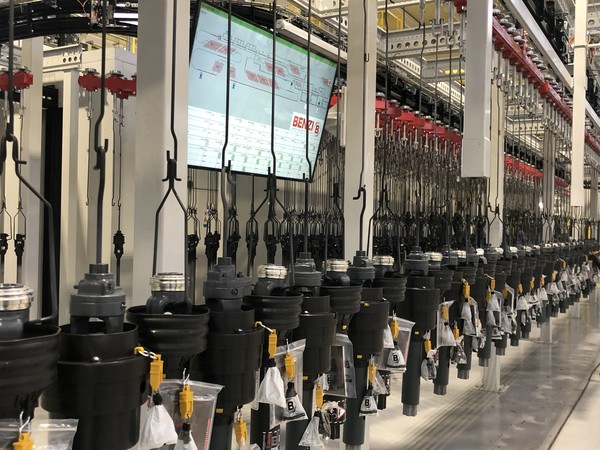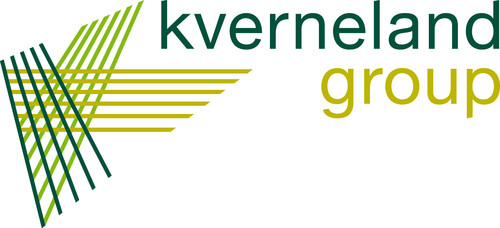
Flexibility and quality to cope with the emergency
On the eve of EIMA International, Mondo Macchina meets the president of Comacomp, Pier Giorgio Salvarani, to take stock of the performance of the components sector in the first ten months of the year. In 2022 the sector is expected to record a drop in turnover, penalised by high production costs and aggressive competition from China, India and Turkey
After a record-breaking 2021, which saw the value of agro-mechanical components production rise to 3.3 billion (+18% over 2020), the first half of 2022 marked a further expansion of business for many manufacturers. According to a recent survey conducted by Comacomp among its member industries, more than 77% of companies in the sector recorded increases in turnover of between 3% and 20% in the first six months of the year. According to Comacomp's Observatory, the expansive phase is expected to continue in the second half of the year, even if some elements of instability are on the horizon that could dampen growth. On the eve of EIMA International, Mondo Macchina met with the president of the components manufacturers' association, Pier Giorgio Salvarani, to take stock of the trends in the market and the short and medium term.
The first ten months of the year were characterised by a slowdown in the agro-mechanical sector, a 'pause for thought' after the record increases of 2021. The downturn in business, however, has not yet affected component manufacturers. The sector therefore seems to be confirming its anti-cyclical nature ...
Ours is a cross-sectional sector. Our companies produce extremely wide and differentiated products ranging from gearboxes to electronic control units, from cardan shafts to nozzles, to sensors and video terminals. Moreover, part of our production is also absorbed by sectors other than agriculture. I am thinking, for example, of the construction and earthmoving industry. This allows us, within certain limits, to compensate for fluctuations in demand in one of our core markets. Obviously, the most significant share of demand comes from agricultural machinery. This means that, although it is to a certain extent anti-cyclical, the components trend is still affected by the economic trends in the agro-mechanical industry.
Despite the good performance seen in this first part of the year, about half of the manufacturers surveyed by Comacomp expect a possible drop in orders for the second half of 2022...
The first part of the year saw business essentially holding up. The climate, and with it the sentiment of companies, started changing in the second quarter when our sector was also affected by the supply crisis, which was aggravated by the military conflict in Ukraine and the increase in commodity prices. I must point out in this respect the situation of electronic components, which has become particularly complex in recent months. Not only because of procurement difficulties, on which the well-known logistics problems are weighing heavily, but also because of inflationary pressures that have reached record levels.
What strategies have been deployed by industry companies to cope with rising commodity prices?
In the first phase, manufacturers tried to absorb raw material price increases by reducing margins and drawing on their stocks. Unfortunately, however, this was a short-term strategy, unsustainable in the medium and long term. As the crisis continued, many companies found themselves in the position of adjusting their price lists upwards.
Recently the president of FederUnacoma, Alessandro Malavolti, stressed the need to adopt systemic initiatives to manage the current emergency, which is closely linked to the evolution of the geopolitical scenario. Otherwise, Italian agro-mechanics could lose market share to those countries that offer products that are poorer in technology but more competitive in terms of price. Is this a risk that also affects component manufacturers?
The risk is there and it is real. Not so much for the industries producing high-tech components, competitive advantage over Chinese, Turkish or Indian manufacturers. The real Achilles' heel of our industry is mechanical components. It is on this terrain that Made in Italy, although of a higher quality level, could lose market share. The consequences of the war in Ukraine and the sanctions against Russia are having a particular impact, producing outsized price increases for energy commodities. The manufacturing activities of those states that, like ours, adhere to the sanctions regime against Russia are being penalised. Italian industries are finding it difficult to compete with companies in countries - Turkey, India, and China - that do not adhere to this sanctions scheme and therefore have a much more favourable cost structure than ours. Moreover, even in the past in Ukraine, these manufacturers could use the competitive price lever to their advantage. Therefore, one of the first steps of the new government should be precisely to calm the energy market.
We are on the eve of the 45th edition of EIMA International and, as always, the components show is one of the highlights of the exhibition. With about a month to go before the turnstiles open, some 700 companies have already formalised their participation in the event. More will be added in the days of the final rush. In short, the Bologna event confirms itself more and more, also for component manufacturers, as a strategic point of reference in the world trade exhibition landscape ...
On the world scene, EIMA International can boast positions of absolute excellence not only in comparison with sector events but with what we might call generalist events. For its sector of specialisation - that of agricultural machinery - EIMA is an undisputed point of reference, a pole of excellence that has its hallmarks in innovation, internationality, and the breadth and quality of the ranges on offer. As always, the Bologna exhibition dedicates a prominent space to components with a specific show (that of components, ed.) alongside the other four (Energy, Idrotech, Green, Digital). The 2022 edition is set to start with the best auspices, considering that the exhibition area was already sold out at the beginning of September and that for many of the 1,500 exhibiting industries we had to resort to a waiting list. In short, after the extraordinary result of 2021, when the event was held in a situation still strongly conditioned by the pandemic, the next EIMA has all the credentials to celebrate another highly successful edition.








